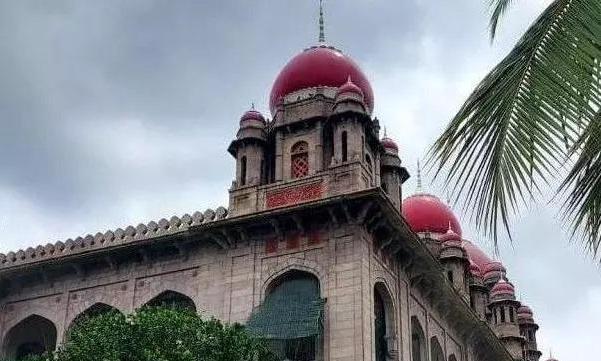
HYDERABAD: Justice T. Vinod Kumar of the Telangana High Court deprecated the practice of citizens invoking the courts’ writ jurisdiction and stating falsehood in an affidavit. The judge imposed costs on petitioner Lankadasari Krishna, a resident of Secunderabad. The petitioner filed a writ petition contending that a person and members of his family had obtained sanction for a two-storey building but were proceeding with a four-storey structure and that the civic authorities were not acting upon this illegality. Perusing the document filed by the petitioner, the judge observed that the building permit, as depicted in the photograph, showed that the construction was permitted for a building consisting of one stilt plus four upper floors, and the photographs as annexed also showed the said construction to be consisting of four floors. There are no additional two floors as claimed by the petitioner in the writ petition. The judge further reasoned that it is a settled position of law that a person approaching and invoking extraordinary jurisdiction of High Court under Article 226 of the Constitution was required to come with clean hands and not resort to suppression. The judge dismissed the writ petition by imposing costs and further clarified that it did not preclude the respondents-authorities from causing inspection as to whether the construction of the building was in conformity with the building permission or not.
APCPDCL directed to consider pleas on levy of Rs 16.85 lakh penal fee
Justice Surepalli Nanda of the Telangana High Court directed APCPDCL to consider all the pleas put forth regarding Rs 16.85 lakh penal fee levied on a ferroalloy industrial unit. The judge made the order while dealing with a plea filed by Mahavir Ferro Alloys. It was the case of petitioner that, per Clause 5 of the Tariff Order for HT-I category, it was evident that in any month if the recorded maximum demand (RMD) of the consumer exceeded his contracted maximum demand (CMD), depending upon the percentage of excess RMD, the consumer, if liable, has to pay the prescribed penal charges. Moreover, if the RMD is 100 to 120 per cent over the CMD, then demand charges are levied twice the normal charges and there is no penal levy on energy charges. The petitioner contended that as it is a ferroalloy unit there are no demand charges, implying that there cannot be any penal charges. The petitioners alleged that for the billing month of June 2011, the respondents had levied penal charges on the full energy at 1.15 times of normal charges. The levy was in addition to the usual levy of Rs 1,12,34,213.90. The petitioner pleaded that it had paid the normal demand charges but not the penal charges. Aggrieved by the excess charges, the petitioner filed representations, which went in vain. Senior counsel M.P. Chandramouli, representing the petitioner, contended that field staff were threatening to disconnect supply if it failed to adhere to the demands. Counsel further argued that as per Clause 5 of the tariff order 2011-12, there cannot be any penalty on the energy and such penal charges cannot be invoked when RMD is not more than 20 per cent. He pointed out that the same plea was raised through various representations before APCPDCL. However, the authorities did not consider the plea with regard to Clause 5 of the tariff order 2011-12. The judge earlier stayed the demand of penal charges. The judge without going into the merits of the rival contentions and duly taking note of the fact that the averments made in the counter affidavit do not indicate any consideration of the pleas put forth by the petitioner, disposed the writ petition directing them to consider the representation in accordance with law, in conformity with the principles of natural justice by giving an opportunity of personal hearing to the petitioner within six weeks. The judge, however, made it clear that till the representation of petition is considered, the earlier interim order shall remain in force.
Notice to Khammam collector, revenue PS in contempt case
Justice T. Madhavi Devi of the Telangana High Court ordered notice to the principal secretary of the revenue department, FAC chief commissioner of land and administration and collector-district magistrate of Khammam in a contempt case pertaining to regularisation of suspension period of a senior revenue inspector. The judge was hearing a contempt case filed by G. Laxman alleging wilful disobedience of the earlier orders passed by the judge in a writ plea, which challenged the action of the respondents in imposing the punishment of warning and treating the suspension period of the petitioner as extraordinary leave and consequentially rejecting his promotion on par with his juniors. The judge allowed the writ plea and directed the respondent authorities to regularise the suspension period of the petitioner as on duty and to consider his claim for promotion to the post of senior assistant on par with his batch mates, with all consequential benefits. The petitioner alleged that despite directions, the respondent authorities had failed to comply and hence guilty of contempt. Accordingly, the judge ordered notice and posted the matter for further adjudication.
